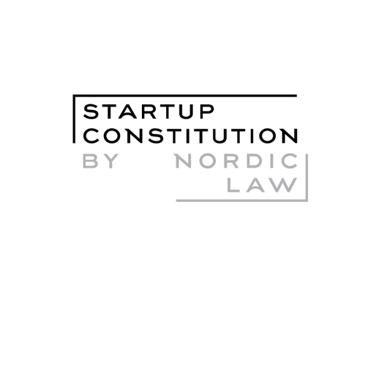If you are the founder of a tech startup, you have most likely run into various IT contracts. This is the case especially if your startup has outsourced the development of a software to a third party software developer. That is a very common alternative if talented dev wizards have not yet joined your startup’s team.
As you may have noticed during your startup path, IT contracts can be very complex and sometimes it would even seem that someone has really tried to make the contract as hard to understand as possible. IT contracts often contain terms and conditions you may not be familiar with in the daily conduct of your startup’s business. Even if this is the case, we have had several clients who have bound themselves to IT contracts they have not properly understood. That is a big NO if you want to avoid unnecessary legal disputes – as a startup founder, you need to always be aware of what your startup is legally bound to.
No matter if the IT contract concerns software licensing or software development, it is important that you first read and consider the agreement carefully. As we at Nordic Law have assisted especially tech startups, we have accumulated quite the experience regarding startups looking to implement or have developed software or other digital services. Based on that, below are presented certain key elements, which startups should carefully consider when reviewing proposed IT contracts:
1. Who is the party behind the drafting of the contract? If you are a startup, you will most likely use the services of a more experienced IT service provider meaning that you will quite likely be presented a standardized set of terms. In that situation, you should always keep in mind that the service provider has been the party drafting the contract. That means that also the essential terms are drafted from the service provider’s perspective, not the startup’s.
2. Is the scope and schedule of the project and deliverables as agreed? Many times, we have encountered startups that have signed IT contracts where the exact scope does not correspond to the special purpose of the startup. In that situation, the end result might not be the product the startup was hoping for or was promised by the service provider. That is why it is crucial that the scope and specific deliverables are in detail explained in the contract.
3. What about confidentiality and created IP? One cornerstone of IT contracts is that the customer, i.e. the startup, shall own the work product and all created IP related to it. This should always be the starting point and only on rare occasions should the service provider have some rights to the created IP. Closely connected to the IP questions, is the confidentiality aspect meaning that the service provider shall not be allowed to disclose information relating to the project. The both aspects are essential in order for your startup to be the only party entitled to take advantage of the created work product. After all, you are the party paying for the fun – why should you not then also own the entire work product?
4. Is the service provider allowed to use subcontractors? In many IT contracts, the service provider tries to allow the use of subcontractors, which should not be allowed if it is important to you that the work product is developed by a carefully selected service provider. If subcontractors can be used, it is essential to make sure that the service provider is also responsible for the actions of the subcontractors.
5. Personal data, huh? As the protection of personal data is increasingly important, especially in the light of the up-coming General Data Protection Regulation, an essential aspect of all IT contracts is the processing of possible personal data. If your startup has an on-going business relationship with the IT service provider and the service provider has access to the personal data collected by your startup, that must be addressed in the IT contract. You will need to make sure that the service provider is complying with all relevant data protection legislation as the protection of personal data is a key issue regarding all services collecting personal data.
6. Is there a way out? The termination of a IT contract can be a challenging issue, or rather the consequences of a termination. As a startup, you should be careful with IT contracts with very harsh termination clauses. The startup environment is known for radical and rapid changes, which means that the business environment can change very fast. If that is the case, you do not want to be stuck with a IT contract impossible to terminate – as the saying goes, you should always have an exit plan (in almost every aspect).
7. What happens if the work product is filled with errors? Normally IT service providers strive to limit their liability with various terms and conditions. One common way is to offer a fixed-time guarantee period, where after the service provider is not responsible for possible errors in the work product. If the work product is a very complex design, then you need to be very careful regarding the service provider’s limitations of liability as you will want the service provider to fix possible errors.
What can then be summarized as the golden rule for IT contracts? We come back to the introduction above by saying that it is very important that all IT contracts are carefully considered and reviewed before entering into them and in most cases, it is highly recommendable that a lawyer at least reviews the contracts. The money you try to save by not having a lawyer review the contract might in the end cost you much more if significant issues occur later on.
The author of this blog post is Jon Hautamäki, a partner at Nordic Law.





